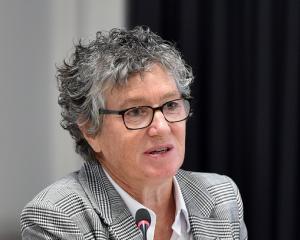Enabling Ōtepoti whānau to thrive and incorporating a Māori world view into Dunedin City Council operations are key concepts in an agreed strategic base.
The council yesterday adopted Te Taki Haruru, a Māori strategic framework.
It "intentionally supports the enabling conditions for Māori intergenerational cultural, social, economic and environmental wellbeing", a council report said.
The document itself described a partnership between the council and mana whenua that would benefit the wellbeing of the whole community.
It provided a structure for mana whenua, Māori and the council to work cohesively to support the vision of "a thriving home, a thriving village" for the next generation.
"Te Taki Haruru envisions a reality where local government, mana whenua and the wider Māori community can work together with a shared aspiration to transform the state of wellbeing of whānau, anchored in connection between people, place and environment."
An implementation plan is under development.
Dunedin Mayor Jules Radich said Te Taki Haruru provided an enabling mechanism for greater understanding and successful development for all parties.
Cr Sophie Barker said it provided a beautiful, strong base to work from.
Cr Christine Garey said it reflected a deepening relationship between mana whenua, mātāwaka (Māori in Dunedin who are not mana whenua) and the council.
Cr Marie Laufiso acknowledged tangata whenua staff for their endurance, patience and resilience in a "largely monocultural institution".
The council voted 14-1 to adopt the strategic framework.
Cr Lee Vandervis was against.
Taki Haruru is the original name for Pilots Beach, a historical site where the Treaty of Waitangi was signed in 1840 by chiefs Kōrako and Karetai.
"In the context of the strategic framework, the name Te Taki Haruru is a metaphor that connects Ōtepoti Dunedin residents to the past, to the place where the Treaty was signed and, like the constant roar of the ocean, is a constant reminder of our Treaty of Waitangi relationship," the council report said.
Key principles
- Autūroa refers to the concept and practice of mana and the longevity of ongoing influence and leadership in the community.
- Auora refers to the concept and practice of mauri and the health and wellbeing of people, land and waterways.
- Autaketake refers to the concepts of tapu and noa and the protection of resources, people and particular areas that enable people to live sustainable lives.
- Autakata refers to the concept and practice of whakapapa and the connection of people and place through genealogies, relationships, reciprocity and respect.
— Source: Dunedin City Council
Advertisement













